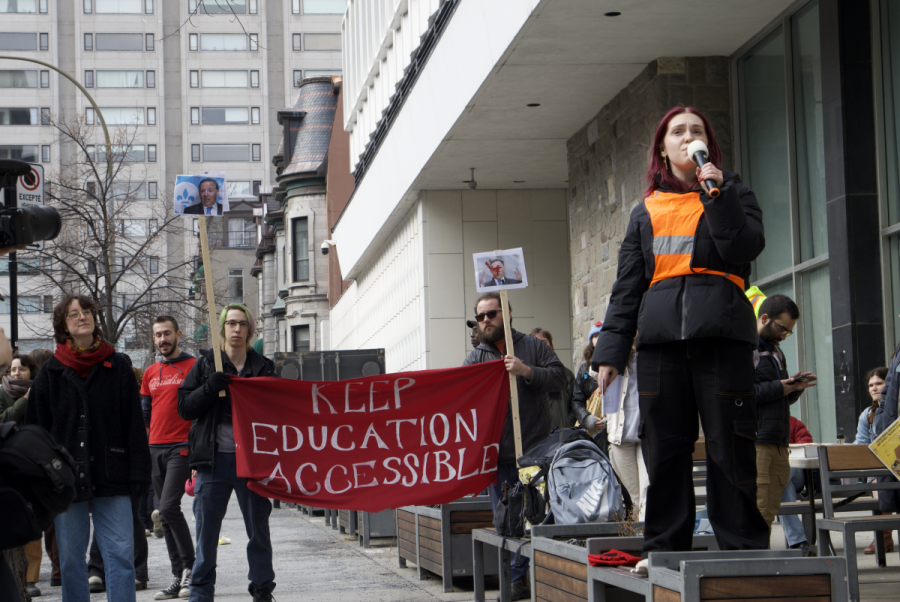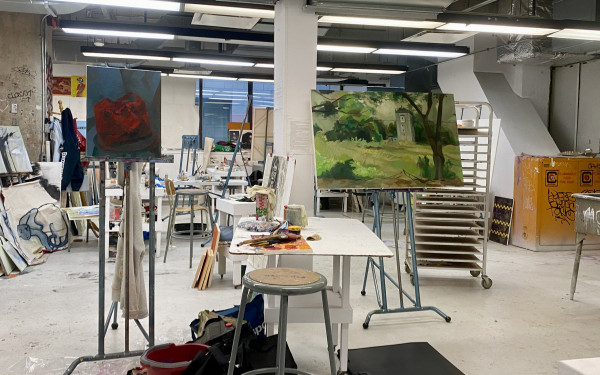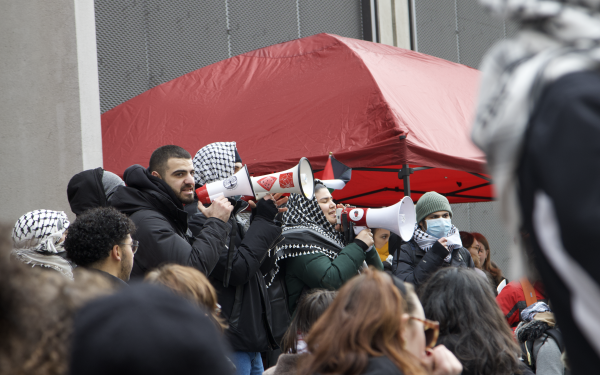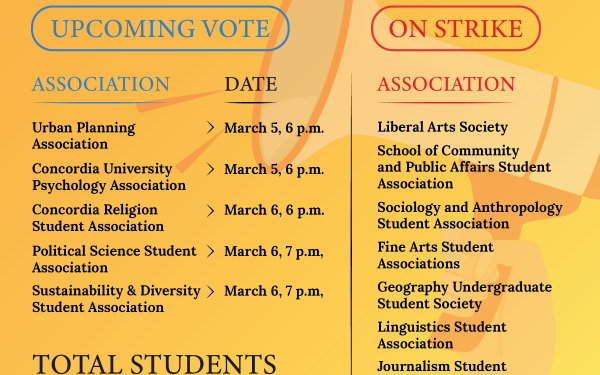Student associations strike against tuition hikes
Concordia student strikes gain momentum, calling for government attention
From March 11 to 15, various student associations initiated a strike against the proposed tuition hikes Following two weeks of general assemblies across different departments, over 21 student associations voted to join the strike.
According to Juliana Rodriguez, an executive member of the Sociology and Anthropology Student Union and one of the organizers of the strike, it is gaining momentum with new student support, however, some students hold opposing views.
“The strike is going great. We’re seeing support from a lot of students who are striking for the first time this week, which is exciting,” said Rodriguez. “In our department, we had a general assembly and we saw new faces, people who just showed up in the mezzanine of the Hall Building. Obviously, some students are against this and it’s important to recognize that we have to build a little bit more of a coalition and change the narrative instead of them seeing us as their enemies.”
Some students from different faculties on strike haven’t joined the protest, although they respect their standpoint and don’t find the tuition hikes fair. Omar Kassen, a mechanical engineering student whose midterm exam was canceled because of a picket line, believes that the current strike approach isn’t the most effective method to address the issue.
“I don’t think it’s big enough, and I don’t think a small portion of students is going to change that,” said Kassen. “They need a lot more support which is what we’ve had on the streets, Concordia and McGill acted together against it but I don’t think the students going against Concordia is the right thing to do since Concordia is on their side already, so if you want to interrupt something, go after the government.”
After a three-day strike in February, Concordia student associations voted for a week-long strike, in early March. Over 20,000 students were striking and were then joined by the Engineering and Computer Science Association on Wednesday. These organizations seek to ensure that their voices are being heard by the government, advocating for changes as they believe the tuition hikes are not the solution.
“Education should not be so expensive already. I know I wouldn’t be able to [study] here if it weren’t for the cheaper tuition,” said Rose Kain-Waterman, a theatre student who picketed in front of a class in the Hall Building. “Limiting access to education and making it more expensive directly affects people’s lives and directly affects how much money we will be making and how much we will be able to survive as individuals in the economy.”
With events like the demonstration on March 13 where Concordia students were joined by McGill University students, Angelica Antonakopoulos, the Arts and Science Federation of Associations' academic coordinator hopes their voices are being heard.
“We hope that this strike will help this movement gain momentum and we hope that a lot of people will walk at the demonstrations that we have planned this week, and that we can really use this as an opportunity to create space to take our voices on the street and make our anger towards the tuition hikes heard,” Antonakopoulos said.







